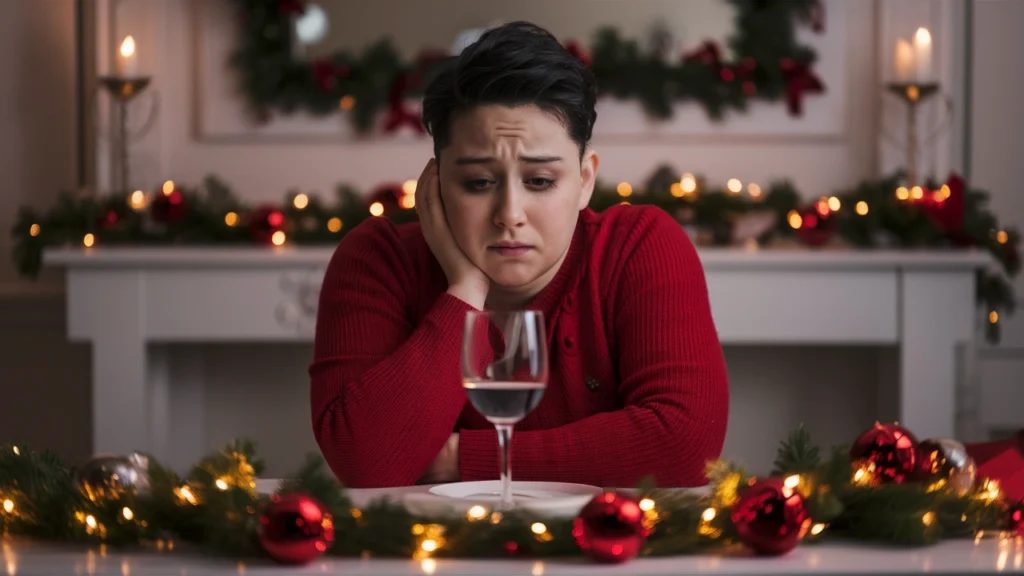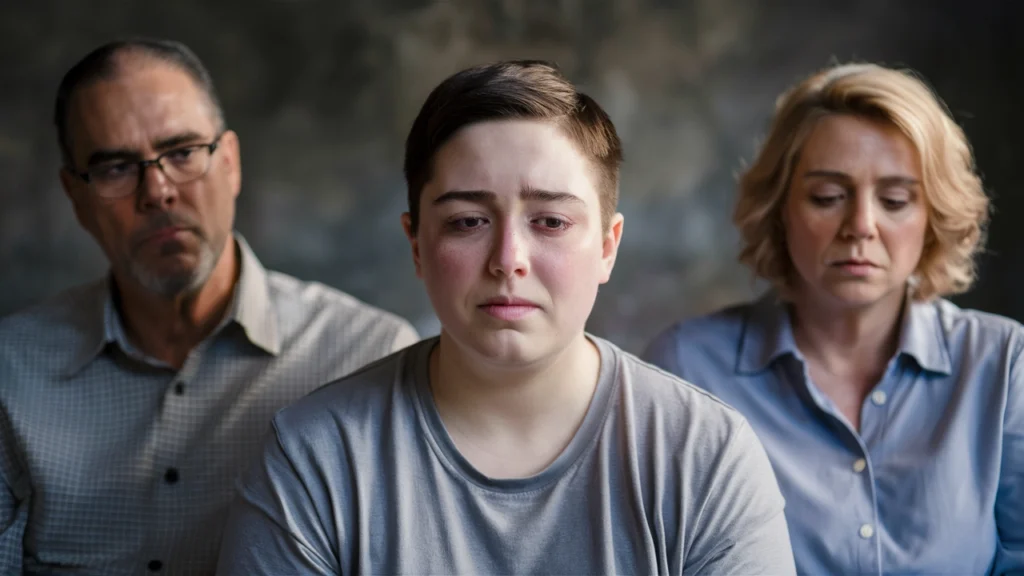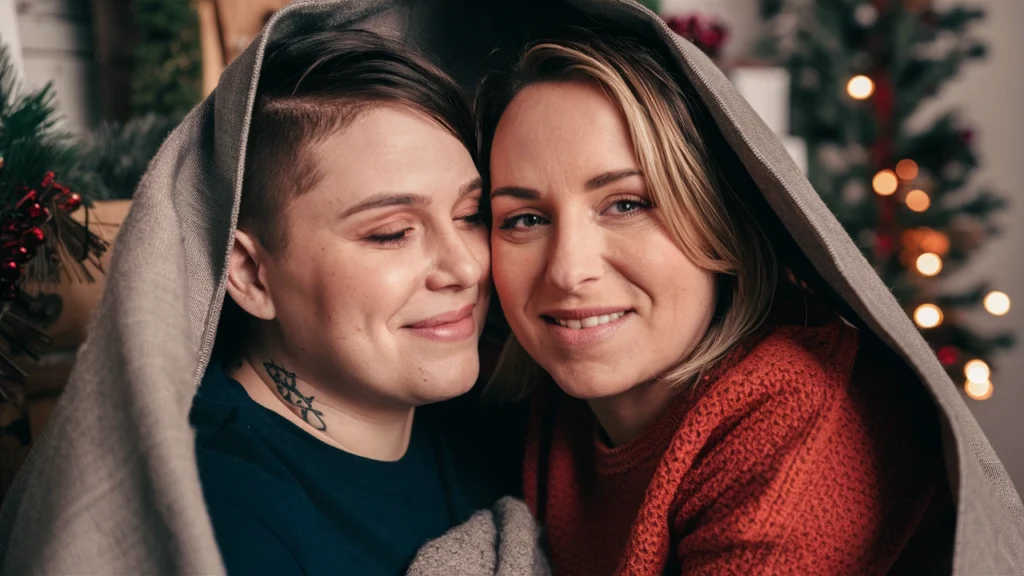LGBTQ+ Holiday Survival: How to Beat Loneliness

The holiday season poses challenges for many queer people who lack supportive families and community connections. According to recent studies, a significant percentage of LGBTQ+ individuals report feeling depressed or lonely during the holidays compared to the general population.
This isolation stems from multiple factors – from family rejection to being unable to safely express your identity and relationship status when returning home for the holidays. The pressure to conform to heteronormative holiday ideals and traditions can also exacerbate feelings of loneliness within queer communities.
However, there are ways to cope with and overcome holiday loneliness. This article will provide tips and resources to help queer individuals build support systems, connect with chosen family, and create more inclusive and affirming holiday traditions.
Signs of Holiday Depression
The holidays’ happiness and cheer can contrast sharply with feelings of depression and sadness. Here are some common symptoms of holiday depression:
- Fatigue and lack of energy
- Significant changes in appetite or weight
- Loss of interest in activities once enjoyed
- Persistent anxiety or sadness
- Feelings of worthlessness or hopelessness
- Trouble concentrating
- Thoughts of death or suicide
If you notice these signs in yourself or your loved ones, it may be time to seek professional mental health support, especially important for those experiencing queer loneliness or social isolation.
Challenges Facing LGBTQ+ People During the Holidays

Family Rejection and Lack of Acceptance
For many queer people, holidays mean gathering with family members who are unaccepting or hostile towards their identity. Being misgendered, facing hurtful comments, and being unable to bring a same-sex partner home all contribute to a stressful and lonely holiday season. Even well-meaning family members may lack understanding of queer experiences.
Isolation from Community
If queer individuals travel back to their childhood homes or live in more conservative areas, they can experience isolation from LGBTQ+ communities during the holidays. Being disconnected from supportive friends and chosen family as well as queer resources like community centers and events, can increase loneliness.
Negative Experiences Around Religious Holidays
Holidays with religious origins, like Christmas and Easter, pose unique challenges for queer people, especially those who grew up in non-affirming faith traditions. Painful memories of discrimination or family disapproval associated with these holidays can resurface and cause emotional distress.
Pressure of Heteronormative Holiday Traditions
Mainstream holiday media and traditions tend to assume that everyone celebrating is part of a heterosexual family unit. The expectation to conform – whether that means hiding your identity or not having your different family structure recognized – can breed feelings of invisibility and isolation.
Using Queer Dating Apps and Websites
Dating apps and websites designed for LGBTQ+ people can help combat holiday loneliness and the negative impact of social isolation. Here are some popular options to try:
- Grindr – For gay, bi, trans, and queer men
- Taimi – Inclusive for all LGBTQ+ people
- Her – Made for lesbian, queer, and bisexual women
- Lex – Text-based app for queer, trans, non-binary people
- Bumble – Has options for LGBTQ+ dating
- OkCupid – Matching based on LGBTQ+ compatibility
- eHarmony – Recently added LGBTQ+ dating
Creating a compelling dating profile as a queer person takes some finesse. Here are some tips:
- Be upfront about your sexual orientation and gender identity. This helps attract like-minded people.
- Use inclusive language like “looking for women” rather than “looking for females.”
- Show authenticity through photos and bio info that capture your personality.
- Be clear about what you seek – casual dates, serious relationships, etc.
Dating apps can also be great for finding queer friends and community, addressing social isolation. You can join group chats, get event recommendations, read LGBTQ+ content, and more. Just be mindful of safety when deciding to meet people in real life.
Tips to Cope with Queer Holiday Loneliness

Seek Out Chosen Family and Friend Support Systems
Blood relatives are not always accepting, but chosen family can provide queer individuals with unconditional holiday love and support. Making plans to celebrate with close LGBTQ+ and allied friends helps build a sense of community, beating queer loneliness. Those able to travel can plan a trip to visit a supportive chosen family in LGBTQ+-friendly cities during the holidays.
Attend Queer Community Holiday Events
Most major cities host many queer holiday events to help LGBTQ+ people connect and celebrate in an affirming environment. Local LGBTQ+ newspapers, magazines, and websites can provide information on events like drag holiday shows, “Friendsgiving” potlucks, and queer New Year’s Eve parties. Websites like Meetup.com also list queer holiday meetups. Attending these events helps build community and decreases feelings of loneliness.
Volunteer to Help Others in the Queer Community
Giving back by volunteering time to help queer organizations gives a sense of purpose during the holidays. Looking for opportunities like working at an LGBTQ+ community center holiday party, raising donations for an LGBTQ+ youth shelter, or assisting a transgender support group can help strengthen bonds within the queer community.
Start New Inclusive Holiday Traditions
Finding fun new traditions to partake in – in-person and virtual – helps queer individuals and families celebrate the holidays more affirmatively. Traditions like hosting a virtual queer movie night on Christmas Eve, creating new nutritious dishes for Thanksgiving dinner, or organizing an inclusive Secret Santa gift exchange build community.
Practice Self-care and Mindfulness
The holidays can be emotionally exhausting for queer people dealing with family tension, discrimination, and exclusion. Making time for regular self-care practices is key. Journaling, exercising, pursuing hobbies, and reaching out to LGBTQ+ mental health hotlines can help manage stress. Staying mindful of taking breaks from holiday intensity helps maintain well-being.
Finding Queer Holiday Events and Activities
Here are some tips for finding queer welcoming holiday happenings:
Check Local LGBTQ+ Community Centers
Queer community centers in major metropolitan areas host diverse holiday events each year. Most centers post their holiday event calendars online. Centers like Los Angeles LGBT Center and New York LGBT Center offer holiday parties, meals, mixers, and more.
Join Online Queer Holiday Support Groups
For those not living near community centers, online groups help connect virtually. Reddit forums like /r/LGBT have threads where members post meetups. Facebook also has regional queer holiday groups to join. Connecting online leads to in-person meetups.
Attend Virtual LGBTQ+ Holiday Events
Virtual celebrations hosted by queer organizations are more accessible for those unable to travel or in rural areas. Many feature live entertainment, workshops, games, and chats with attendees. Finding these on Eventbrite and Facebook is easy.
Conclusion
The holiday season can stir up loneliness, isolation, and low mood for LGBTQ+ people dealing with family rejection, discrimination, and lack of community. However, compassionate resources and supportive communities can help queer individuals feel less alone during the holidays.
By focusing on chosen family connections, participating in queer holiday events, starting new traditions, practicing self-care, and giving back, queer people can find belonging. The vibrant, resilient queer community has affirming spaces to provide comfort and hope during the holidays for those who seek it. You are not alone.
For anyone struggling with intense mental health issues around the holidays, please reach out to hotlines like The Trevor Project or connect with a queer-affirming therapist. Help is available – you are worthy of care and compassion this season, especially if you’re dealing with the impact of being isolated or bullied.
